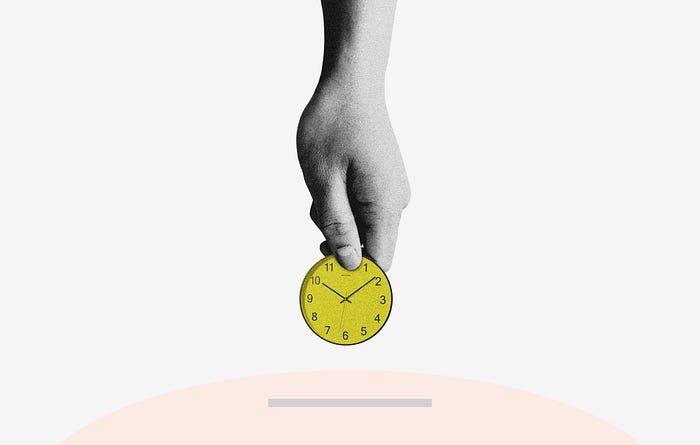Navigating the Fine Line Between Patience and Self-Sacrifice
Written on
Understanding Toxic Patience
What occurs when our patience comes at the cost of our own well-being?
Are you the type to forgive and be patient, or do you tend to shy away from confrontation? From a young age, we are taught that patience is key to achieving a fulfilling and stable life. However, what happens when this virtue morphs into avoidance? Even more troubling, what if it becomes a justification for maintaining harmful habits?

Many of us can identify with someone who forgives too easily. That individual was once me. I epitomized the people pleaser, often to my detriment. Throughout my twenties, I continuously gave to those who only took from me. I exhibited immense patience and repeatedly forgave individuals who exploited my gentle nature. They would assure me that they would change, and my desire to believe them led me to wait—endlessly.
Eventually, I reached my breaking point. I was unaware of my limits until I was pushed to them, and the experience was jarring, akin to careening down a zipline without brakes.
The concept of patience is universally acknowledged as a virtue. However, patience devoid of boundaries can transform individuals into doormats for those who wish to walk all over them. When there are no limits to what an exceedingly patient person will endure, a toxic cycle rapidly ensues.
Additionally, there is a darker side to patience when it becomes a reason to avoid confronting what we need to eliminate from our lives. For instance, how many of us have chosen to "forgive and forget" betrayals from loved ones, accepting their apologies while vowing to be patient as they attempt to change? I have certainly found myself in this position many times.
I tend to see the good in others and recognize their potential, even when they show little interest in actualizing it. This trait is embedded in my very being. I instinctively resist cutting ties with individuals who struggle, even when their negativity pulls me down. My desire to help, support, and uplift them often leads me to overlook my own needs.
This inclination has proved to be my most detrimental trait. It has taken considerable time for me to prioritize my own well-being in these scenarios, and I am still navigating this challenge daily.
Patience becomes misguided when there is an imbalance in toxic relationships. Healthy patience comes with conditions; we can endure discomfort, delays, and challenges, but we cannot accept mistreatment. Healthy patience does not involve lingering in situations that we have outgrown; it should never serve as an excuse to remain in environments that no longer serve us.
True patience incorporates boundaries, self-awareness, and respect for everyone involved. It enables personal growth and allows us to move toward our best selves without being dragged down. This is the kind of patience we should all aspire to embody.
Chapter 2: Embracing Healthy Boundaries
If you enjoyed this article, you might also like:
- Read: Machete Mind Hacking: Neuroplasticity and Robert Frost
- Read: How I Revived My Life After Reaching Rock Bottom